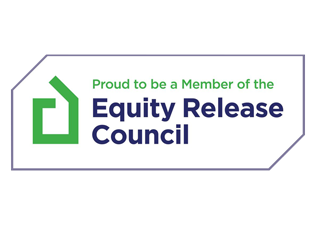As more and more outlets go cashless, concern is growing about the individuals and small firms who rely on notes and coins every day. The FCA’s own recent Sector Views highlighted access to cash one of its concerns for the year ahead.
In this article, FCA guest author Rachel Statham from the Institute for Public Policy Research (IPPR) makes the case for swift action from both policymakers and regulators.
Last month, my local coffee shop announced it was going cashless. With over 75% of current payments made digitally – by card, mobile wallet or other payment device – the costs of cash handling were seen to offset the gains of retaining the hard core of cash users. While this change might not make a huge amount of difference to me, for those that still prefer or rely on cash to make payments, the shift away from cash presents a more threatening spectre.
Now, with the Coronavirus outbreak reshaping every area of economic life, we should be particularly wary of a rush away from cash that could leave some even more vulnerable.
Card payments overtook cash for the first time in 2018, and forecasts suggest fewer than 1 in 10 payments will be made using cash by 2028. But what’s driving this trend goes beyond changing consumer preference and has significant implications for who holds power in the UK economy.
The world of payments is being transformed by the digital revolution in finance, and as consumers move in growing numbers towards digital payments there’s growing economic value to be gleaned from personal financial data.
With platform giants including Amazon, Facebook and Google engineering further moves into personal finance markets, with new offers of personal loans, e-wallets and even crypto-currencies, it is time policymakers and regulators raised their heads to consider the shifting market dynamics associated with the shift away from cash.
The digital divide
New IPPR research heard from consumers across Scotland, England and Wales about their hopes and fears for a future with less cash. A clear digital divide has opened up between those who are comfortable managing their lives and finances online, and those who lack the skills, confidence or tools to do so.
Often the latter group are already at greater risk of financial vulnerability and exclusion – the most powerful predictor of cash use is low income – and our research found mistrust of digital finance often stems from the experience of being stung by unplanned overdraft charges or unseen fees.
The case for maintaining the UK’s creaking cash infrastructure is vital for the foreseeable future. For families managing a tight budget, those who rely on carers to help manage their money, or workers in the informal economy, cash remains a lifeline.
As more and more of our financial lives are captured as data, financial institutions have an opportunity to better identify, understand and respond to their customer’s needs. This presents new and exciting opportunities to build services that do better by those communities who are under-served by current provision and those who are vulnerable to exclusion from financial services.
Bridging these divides will take time, and while the pace of change needs to improve, there is also a clear need to protect access to cash for those who still prefer or rely on it. At IPPR, we’ve made recommendations to strengthen the UK’s cash infrastructure through legislation for a Universal Service Obligation on cash access, alongside consumer agency Which? and the Federation of Small Businesses.
This month’s UK Budget responded with a commitment to legislate to protect access to cash. But we also need to design more effective incentives for local businesses to provide free access to cash access within communities. By introducing business rate rebates for free-to-use ATM operators and rolling-out free, in-store cashback services, we can strengthen local cash eco-systems and put the UK’s cash infrastructure on a more sustainable footing.
Shaping an inclusive digital transition
In spite of the digital divide, what links cash and digital payment users is a clear sense of unease about the future, and who might be left behind by the proliferation of digital payments. This unease extends to small businesses across the country, too. Although the shift to digital offers the UK’s growing pool of self-employed people greater security and accountability, too many small businesses like my local coffee shop are left stuck ‘between a rock and a hard place’.
On one hand, a card payment market dominated by two major players has been characterised by mounting fees, and on the other, processing cash payments is becoming more costly as revenues shrink, bank branches close and depositing cash and coin is associated with new fees. While a fully cashless society may not be on the immediate horizon, action is needed now to shape an economic future that’s both more digital and more just.
To ensure excellent financial services are available to all, we need to harness some of the financial gains flowing towards large financial service providers and Big Tech – through productivity improvements, lower overheads and more powerful data insights – and cycle them into an inclusive transition. By investing in strengthening connectivity, boosting digital capability and fostering inclusive innovation in FinTech, we can start to build bridges into digital finance for those communities at greatest risk of being left behind.
We’ve made the case for a Digital Transition Levy to replace the Bank Levy, which together with national Transition Frameworks would enable devolved governments to set targets and fund investment to meet the varied challenges of a digital transition facing communities across the UK.
Strengthening regulation to level the playing field on payments
The impact of the UK’s changing payment market extends far beyond our wallets, or our lack of them. The data revolution in finance offers significant opportunities to create a fairer economic future, through the development of more personalised services, opportunities to flag problem spending earlier, and new tools to tackle financial crime.
But as platform giants move into payment and personal banking markets, there is a clear risk that economic power will be increasingly concentrated within a small number of dominant firms, undermining the promise of Open Banking to strengthen competition and boost innovation.
As new realms of finance are digitalised, action is needed to protect against the monopolistic tendency of data-driven business models, in which huge economic value is extracted from ownership of data and economic power is increased with scale. Here, concerns should extend to both the card payments market and the wider realm of evolving digital payments.
European Banks’ recent intervention on plans for an alternative card payment network may offer useful lessons here, as may Sweden’s mobile payment market, in which the most widely used payment app, Swish, is a joint venture between six major banks.
To ensure market participants have access to digital marketplaces on equal terms, we need measures to place stronger regulatory conditions on vertical integration – where, for example, a large merchant controls both the marketplace and the payment system through which purchases are made.
Recent interventions from regulators, including European competition commissioner Margrethe Vestager, have highlighted concerns about anti-trust behaviour. This has included warnings that vertical integration in payment markets could present a competitive advantage that potentially harms consumers where it leads to dampening competition, declining choice and rising prices.
At IPPR, we’ve developed recommendations that new powers should enable the Competition and Markets Authority to impose conditions on market entry for major platforms, including requirement to comply with open banking principles and open-source technology, and to compel platforms to open up their data upon entry to personal finance markets. These should include an option to block market entry, including for major technology platforms, where it could lead to consumer detriment, slowing in innovation rates, or excessive market power.
A future with less cash
The future will have less cash. This prospect raises questions that reach across our economy, from my local coffee shop to the Bank of England. But action taken by government, regulators and financial service providers now will determine the course of this transition and who stands to benefit from it. Protecting against monopoly power in payments markets will be key to shaping a future economy that is both more digital, and more just.
By cycling the financial gains from a more digital economy into efforts to strengthen digital skills and connectivity where they’re lacking, protect cash access where it’s needed, and foster more inclusive forms of innovation, we can get some way towards a future for UK payments that delivers excellent financial services for all.
[Source: fca.org.uk, 27 March 2020]
Want to know more? Get in touch!







